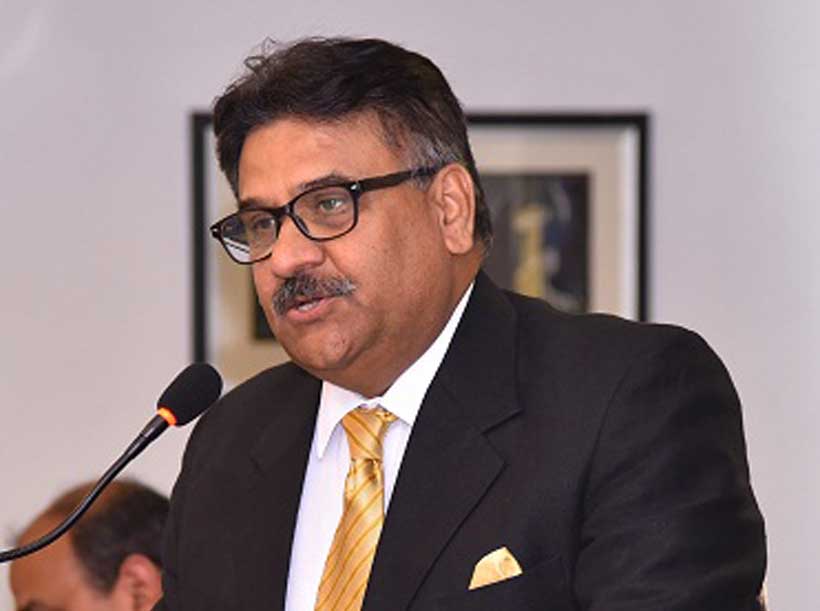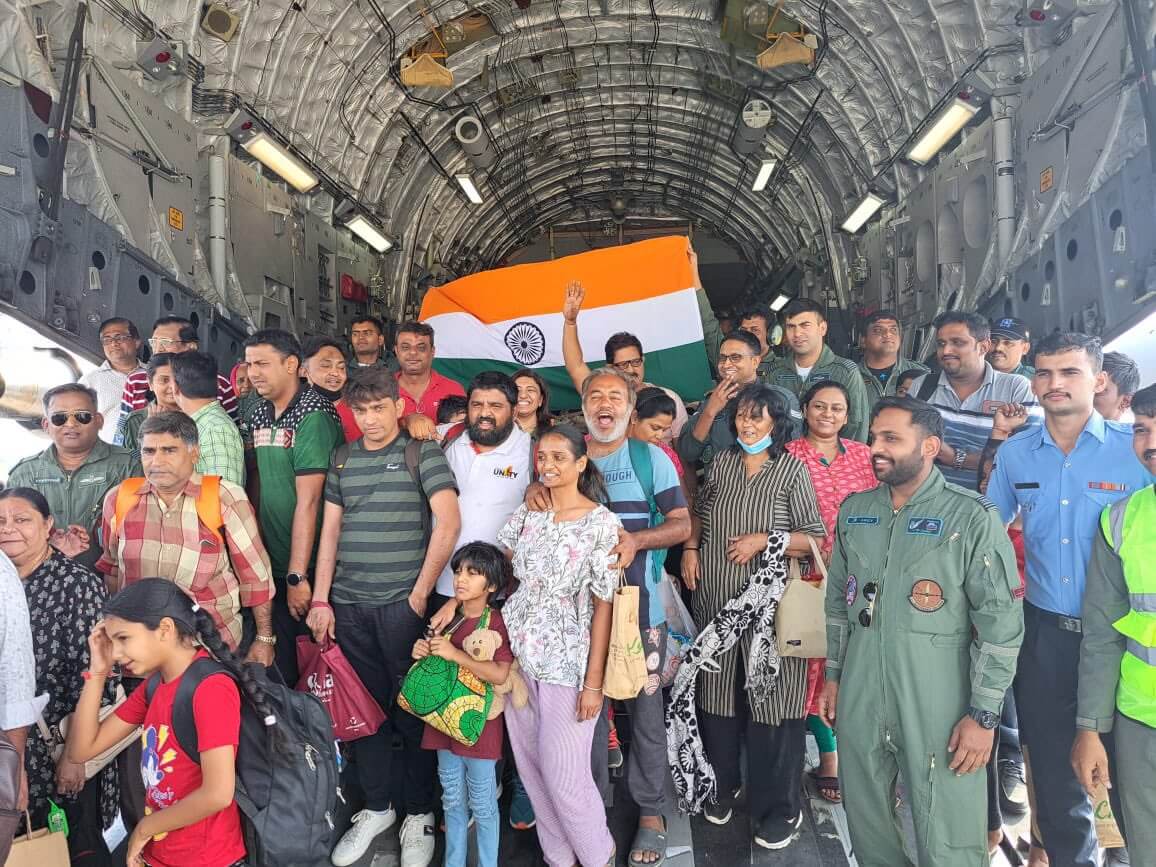Sudan has descended into turmoil yet again and any progress towards achieving civilian rule appears to have been shattered. With the country’s two most powerful generals — Abdel Fattah El Burhan, leader of the military government, and Mohamed Hamdan Dagalo (Hemedti), chief of the paramilitary Rapid Support Forces (RSF) — battling for power, the Sudanese people continue to suffer. Moreover, the conflict has put tens of thousands of foreign nationals, including diplomats, in grave danger. Countries have launched massive rescue efforts to evacuate their citizens to safety. India has already evacuated hundreds of its citizens stranded in Sudan as part of Operation Kaveri.
In an extensive interview with Statecraft, Amb. Anil Trigunayat, former Indian ambassador to Libya, Jordan, and Malta, talked about Operation Kaveri, the crisis in Sudan, and gave an insider’s view regarding how India prepares for such emergency situations.
Amb. Anil Trigunayat is a member of the Indian Foreign Service. He has served in the Indian Missions in Cote d’Ivoire, Bangladesh, Mongolia, USA, Russia, Sweden and Nigeria, Libya and Jordan. In the Ministry of External Affairs, he has worked in the Economic, West Asia and North Africa and Consular Divisions. He also served as Director General/Joint Secretary for the Gulf & Haj Divisions in the Ministry of External Affairs, New Delhi. Thereafter, Mr. Trigunayat worked as Deputy Chief of Mission in the rank of Ambassador in the Embassy of India, Moscow. Prior to his superannuation in May 2016, he served as Ambassador of India to Jordan and Libya and High Commissioner to Malta (June 2012 – May 2016).

He is a member of the All India Management Association/Delhi Management Association, Oxford and Cambridge Society of India, and the Association of Indian Diplomats (former Ambassadors). He is an Honorary Member of the International Trade Council, Brussels. Amb. Trigunayat is also a Distinguished Fellow at the Vivekananda Internation Foundation (VIF) in New Delhi.
The following is a transcript of the interview:
India has started Operation Kaveri to rescue its citizens stranded in Sudan. It has already deployed military transport aircraft and several Navy ships have reached Port Sudan in the Red Sea. Hundreds of Indians have been evacuated. The entire operation is a demonstration of India’s expertise in conducting evacuations and providing relief efforts. How does this translate into India’s ambition of being a global power?
Well, as you know, India is probably one of the few countries in the world that has successfully carried out very large-scale evacuations. In the past four decades, India has launched rescue and humanitarian efforts in Iraq, Lebanon, Yemen, Libya, and several other African countries.
Most recently, Indian launched the Vande Bharat mission (One of the largest evacuations of civilians by a country. According to the Ministry of Civil Aviation, more that 200,000 flights were operated under the mission and over 18 million people were facilitated).
These evacuations have continued to be performed with great professionalism and India has a very significant and robust evacuation plan. However, it can only function if there is a certain goodwill on the ground with local actors and authorities.
This was recently seen in India’s rescue efforts in Ukraine (The government successfully evacuated around 20,000 Indians from Ukraine).
With regards to the situation in Sudan, India’s aim is to evacuate all citizens safely from the conflict zone. Apart from rescuing its own citizens, India also evacuates people from different countries, whenever possible. I have, myself, done it and the Indian government advocates for this. For example, in Yemen, in 2015, India evacuated people nearly 1,000 people from over 40 countries.
So, this is also an internationally joint effort. For instance, in the case of Sudan, Saudi Arabia, which has influence over the two warring generals — El Burhan and Hemedti — evacuated people from different nationalities (including Indians).
Moreover, while several countries (including the US) evacuated their diplomats first, India’s case is different. Diplomats are generally the last people to leave, when it comes to India. We try to rescue Indian citizens first and that has been the government’s priority. From this point of view, India’s strategy becomes its soft power, and it is viewed as a first responder in such situations. We have a pretty well-oiled machinery in this regard.
However, every problem is unique in many ways; every geography is different, every country is different. Every problem presents a different challenge for the diplomats and the Indian government. Therefore, every embassy needs to factor in all these challenges. Accordingly, every embassy has a contingency plan and New Delhi has a 24x7 control room to coordinate with the Army, Navy, and other branches of the armed forces, as well as other agencies involved.
Apart from evacuating citizens, what other interests, which could be threatened by the ongoing conflict, does India have in Sudan? How would India expect to navigate through this?
India has a lot of stakes in Sudan. Several Indian companies are operating in the country. We also have some oil and gas interests in the country. Apart from that, Sudan’s stability is very important to India, especially since Sudan is a powerful country, in terms of resources, and India has stakes in this.
We have also been providing a lot of assistance, including capacity building efforts, for Sudanese. A large number of Sudanese students study in India. Apart from our own interests, the stakes also lie in our friendship with Africa, which underscores India’s desire to have a mutually beneficial relationship with all countries in Africa.
In this regard, does India have the clout to broker a diplomatic solution to the ongoing crisis?
Well, at the moment, I do not think we are trying to broker a solution. India’s position has always been that peace should prevail in the region and all conflicts should be resolved through dialogue.
The conflict in Sudan is also a power game between the rival generals, who are fighting to maintain their position. So, it will be difficult for any country to mediate. In the case of India, we would prefer local and regional leaders do the mediation as they are better aware of the situation on the ground. For example, the three presidents of Kenya, Djibouti, and South Sudan along with Arab countries, like Saudi Arabia, and the US are currently working to broker a ceasefire.
As far as India’s clout is concerned, it has ensured our contributions in the fields of healthcare, capacity building, development assistance, and lot of goodwill. But, unless asked for, India does not normally intervene. We usually ask stakeholders to reduce hostility and violence, and return to the table.
You mentioned that India has a “well-oiled machinery” to deal with crisis situations. Are Indian diplomats in Sudan trained and prepared for such situations?
Every ambassador is qualified for such situations and knows the geography, people, and institutions of the country where he is posted. This will be of help during difficult situations. Diplomats are generally well-prepared for these scenarios. The plans drafted for such situations are updated from time to time, and this is one of the main reasons why India has been able to successfully evacuate citizens from conflict zones over the years.
But one has to understand that these are difficult situations. The key is not to over-analyse the situation, because, in a war zone, there is little one can do. Therefore, the most important aspect is that people are evacuated safely and securely without being killed. It is not feasible for a diplomat to go out on the street where indiscriminate firing is taking place; as a result, contingency plans have various modalities by which embassies can contact people and help evacuate them. Every ambassador and embassy official is trained in this regard, and they will also be regularly updated from New Delhi.
In the case of Sudan, the Minister of State for External Affairs V. Muraleedharan is in Jeddah to oversee the rescue efforts.
Have you personally dealt with conflict situations while serving? If so, how did they go?
I have been in such situations many times and have helped with evacuation efforts. When I served in Nigeria, there was situation in which Indians had to be evacuated. We had coordinated with the French team. While serving as Ambassador in Libya in 2011, there were several times when conflict scenarios emerged and people had to be evacuated. I also oversaw the evacuation of hundreds of people while serving in Chad in 2007. Gaza (2014-15) is another example. It is a normal thing that almost every ambassador today has to face, especially because global hostilities and violence are on the rise.
With respect to India’s external relations, it has been cooperating extensively with Saudi Arabia and Egypt. Sri Lanka has also asked for India’s help in evacuating Sri Lankans stuck in Sudan. How is Operation Kaveri boosting India’s diplomatic efforts?
In every region, there is some country that has a much bigger role to play. It can be due to historic, cultural, geographic, and various other factors. India plays this role in South Asia and, therefore, India becomes the focal point to provide such assistance, including ensuring safe evacuations and creating humanitarian corridors.
Moreover, India cooperates with all major stakeholders, be it Saudi Arabia or the UAE, to ensure that all its citizens and people seeking help are safely evacuated.
Sudan has seen relentless conflict for decades. It seems that the country cannot escape from this vicious cycle. Is there a way to bring peace to Sudan? What does it need to do?
It will be very difficult for Sudan to reverse this cycle of violence. It is a misfortune of Sudan that it has the military, which comes to power and refuses to abdicate that power towards civilian rule. This is a very difficult situation since the military is very ambitious. Sudan will see peace only if the international community starts seriously calling on the military to come to terms with the civilian leadership. This mainly a problem of ambitious leaders; there is nothing stopping Sudan from attaining civilian rule other than the leaders.

